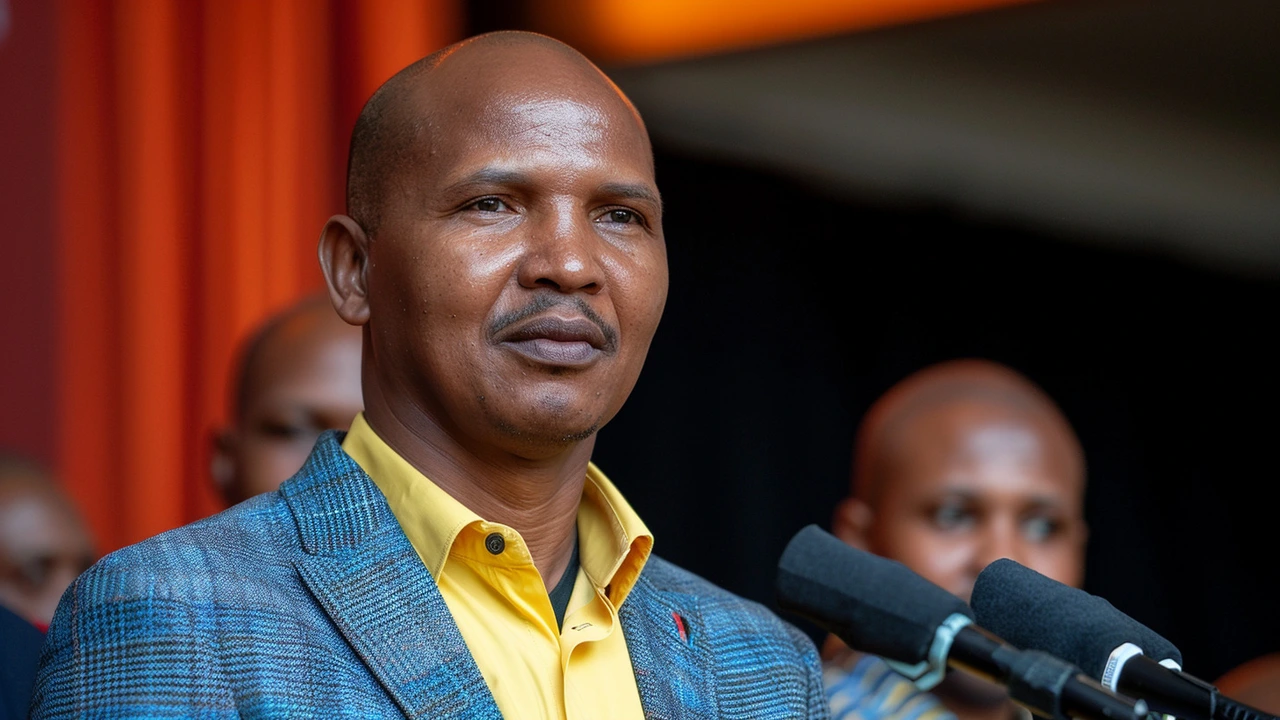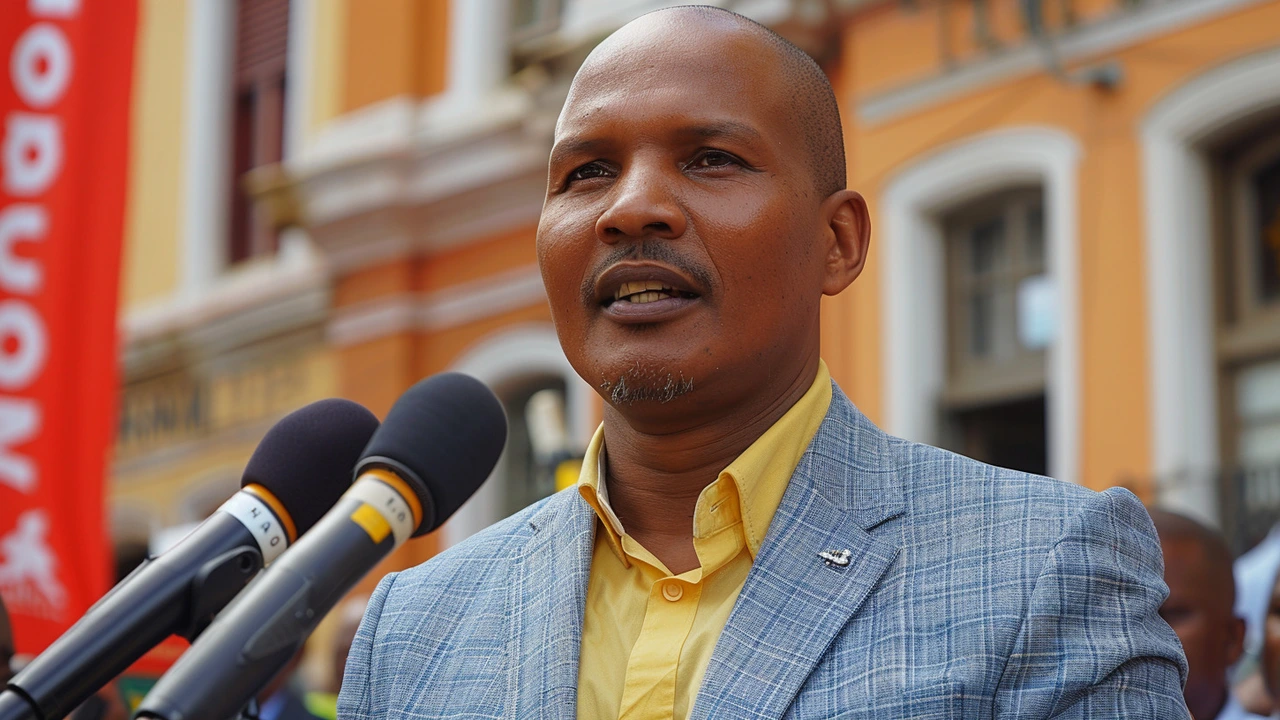Kenya Declares Public Holiday for Eid Al-Adha as Nation Prepares for Celebrations

Interior Cabinet Secretary Kithure Kindiki's recent announcement has stirred a wave of excitement and preparation across Kenya. In a gazette notice dated June 13, 2024, Kindiki declared Monday, June 17, 2024, a public holiday to celebrate Eid Al-Adha. This decision, grounded in Section 2(1) of the Public Holidays Act, recognizes the religious and cultural significance of the event for the Muslim community in Kenya and beyond.
Eid Al-Adha, also known as the 'Festival of Sacrifice,' holds deep spiritual meaning for Muslims worldwide. It commemorates the willingness of Prophet Ibrahim (Abraham) to obediently sacrifice his son Isma’il (Ishmael) on God's command. However, in a merciful intervention, God provided a ram to be sacrificed instead. This poignant narrative underscores themes of faith, devotion, and divine mercy, which are central to the observance of this festival.
The declaration of the public holiday is a reminder of the diverse religious tapestry that constitutes Kenya. Muslims across the nation, and indeed the world, begin their day with special prayers held in open congregational spaces or mosques. Wearing their best attire, they gather to participate in the 'Salat al-Eid' (the Eid prayer), which is followed by sermons that reflect on the significance of the day.
One of the key observances during Eid Al-Adha is the Qurbani or ritual sacrifice. Families that can afford it will slaughter an animal, usually a goat, sheep, cow, or camel. The meat is then divided into three parts: one for the family, one for friends and relatives, and one for the less fortunate. This act of charity not only commemorates Ibrahim's sacrifice but also builds a sense of community by ensuring that everyone gets to partake in the celebration.
The animal sacrifice underscores the themes of generosity and empathy, spreading the festive joy beyond immediate families to the needy and impoverished. For many recipients, this may be one of the few times in the year that they can enjoy such a hearty meal, further illustrating the egalitarian spirit of Islam.
The Significance of the Moon in Determining Eid Dates
Unlike fixed-date holidays, Eid Al-Adha does not have a set date in the Gregorian calendar, as it follows the Islamic lunar calendar. The festival falls on the 10th day of Dhu al-Hijjah, the last month of the Islamic year. Its timing depends on the sighting of the new moon, making the exact date variable each year.
For Muslims, the sighting of the moon is an essential religious ritual. Local religious leaders and astronomers work together to sight the moon, heralding the festival's start. This method of time-keeping brings an added layer of anticipation to the holiday, as families wait eagerly for the official announcement.

Eid Al-Adha in a Multicultural Context
In a multicultural and multi-religious country like Kenya, the recognition of Eid Al-Adha as a public holiday is more than just an official day off. It is a testament to the nation's commitment to religious inclusivity and respect for diverse cultural traditions. This holiday fosters unity and mutual respect among Kenya's diverse communities by honoring the nation's Muslim population and their significant celebrations.
Many workplaces, schools, and businesses will take a break to allow Muslim employees, students, and customers the opportunity to observe the festival fully. For those not of the Islamic faith, the public holiday is an opportunity to learn more about their neighbors' traditions, potentially attending events and festivities hosted by friends and community centers.
The spirit of Eid Al-Adha extends beyond religious observance. In cities and towns, vibrant markets spring up, offering special deals on clothing, food, and gifts necessary for the celebrations. Vendors often stock up on festive items weeks in advance, anticipating the surge in demand.
During this period, the communal aspect of Eid is particularly pronounced. Friends and families spend time visiting each other's homes, sharing meals, and exchanging gifts. For many, it is a time to reconnect with loved ones, reflect on their blessings, and extend a hand of help to those in need.
Preparations and Challenges
As with any major celebration, the preparations for Eid Al-Adha begin well in advance. Families clean and decorate their homes, shop for new clothes, and plan large gatherings and meals. Schools and community organizations may hold classes or sessions to educate the younger generation about the significance of the holiday and its rituals.
However, the preparations also come with challenges. For meat suppliers and livestock farms, this is one of the busiest times of the year. Ensuring that there is a sufficient supply of healthy animals for the sacrifice is crucial. This year, some suppliers have voiced concerns about potential shortages or price hikes, partly due to economic conditions and logistical issues exacerbated by the pandemic. Despite these challenges, families are committed to fulfilling their religious duties, often pooling resources to ensure they can partake in the ritual of sacrifice.

Conclusion
The declaration of Eid Al-Adha as a public holiday by Interior Cabinet Secretary Kithure Kindiki emphasizes the importance of recognizing and celebrating the religious diversity that enriches Kenya. As June 17 approaches, the nation buzzes with anticipation, not just among Muslims but also among the wider community who joins in to observe and celebrate.
This year's Eid Al-Adha promises to be a vibrant and unifying event, filled with prayers, sacrifices, and the generous spirit of sharing that defines the festival. With every proclamation for such holidays, Kenya reinforces its commitment to a harmonious, inclusive society where every cultural and religious practice is valued and respected.
In marking this day, Kenya not only honors the faith of its Muslim citizens but also underscores the importance of unity, empathy, and mutual respect in a diverse society. The country stands as a beacon of tolerance and communal harmony, setting an example for the world on how to celebrate diversity while maintaining unity.
Kenya's decision to formalize Eid al-Adha as a public holiday reflects a nuanced understanding of the nation's pluralistic fabric.
Section 2(1) of the Public Holidays Act, cited by Interior Cabinet Secretary Kithure Kindiki, provides a solid legal foundation for such observances.
The timing aligns with the lunar calendar, which adds a layer of religious authenticity that fixed Gregorian dates cannot replicate.
Historically, public holidays have served as state‑endorsed moments for collective reflection and cultural expression.
By recognizing a major Islamic festival, the government signals inclusivity and respect for a substantial demographic.
This move may also mitigate workplace tension by granting Muslim employees a guaranteed day off for prayer and family gatherings.
Economically, the holiday could stimulate sectors such as retail, catering, and transportation through increased consumer activity.
Nevertheless, the anticipated surge in demand for livestock may exacerbate existing supply chain constraints.
Livestock farmers and meat processors must therefore coordinate closely to prevent price inflation that could disadvantage low‑income families.
The ritual of Qurbani, central to Eid al‑Adha, reinforces charitable distribution, allocating meat to the needy and thereby fostering social cohesion.
Such redistribution aligns with Kenya's broader goals of poverty alleviation and food security.
From a sociopolitical perspective, the holiday offers an opportunity for interfaith dialogue, as non‑Muslim Kenyans observe and learn about their neighbors' traditions.
Schools and community centers can leverage this period for educational programs that highlight shared values of generosity and compassion.
The government's endorsement may also inspire other East African nations to adopt similar inclusive policies.
In summary, the public holiday not only honors religious devotion but also advances economic activity, social welfare, and national unity.
It stands as a testament to Kenya's commitment to harmonious coexistence in a diverse society.
The government's half‑hearted proclamation does nothing to address the supply chain crisis looming over the meat market.
Yet your cynicism fails to acknowledge the centuries‑old tradition that sustains communal bonds through sacrifice.
While logistical hurdles exist, the societal benefits of charity and unity outweigh temporary market fluctuations.
The act of setting aside a day for collective reverence invites us to contemplate the deeper currents that underlie human coexistence.
When a nation pauses to honor a ritual of self‑lessness, it implicitly affirms the philosophical principle that individual desire is subordinate to communal well‑being.
This moment, therefore, transcends mere calendar adjustment; it becomes a reflective mirror for societal values.
Such introspection can catalyze a subtle shift in how diverse cultures perceive one another, fostering an ethic of mutual respect.
In the grand tapestry of Kenyan identity, each thread-religious or secular-contributes to the resilience of the whole.
Indeed, the inclusive spirit of this holiday offers a wonderful platform for building bridges across communities 🌍.
By encouraging dialogue and shared celebrations, Kenya sets a positive example for harmonious multiculturalism.
Let us all embrace this opportunity to support one another, especially those in need, and celebrate the richness of our united heritage 😊.